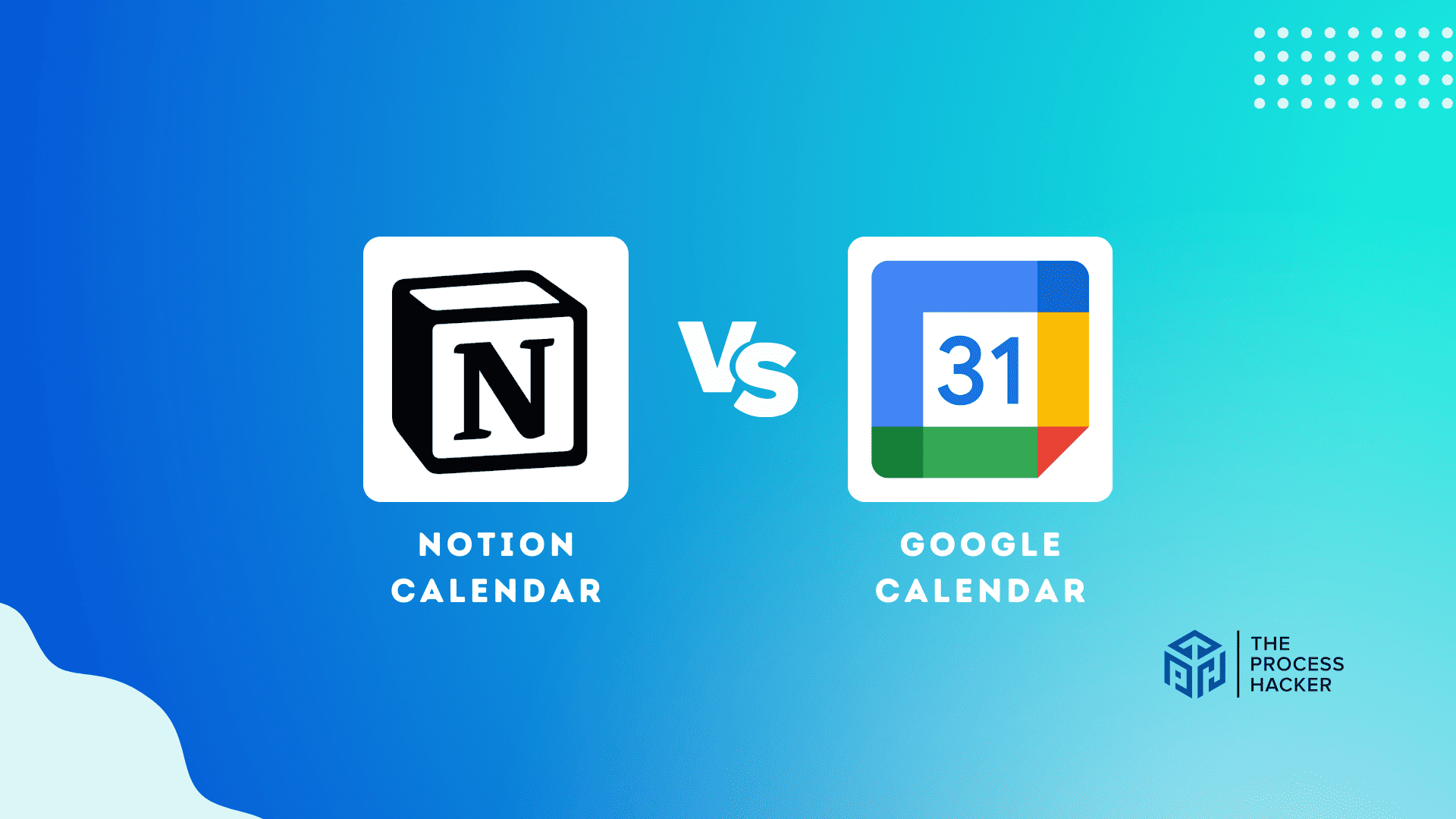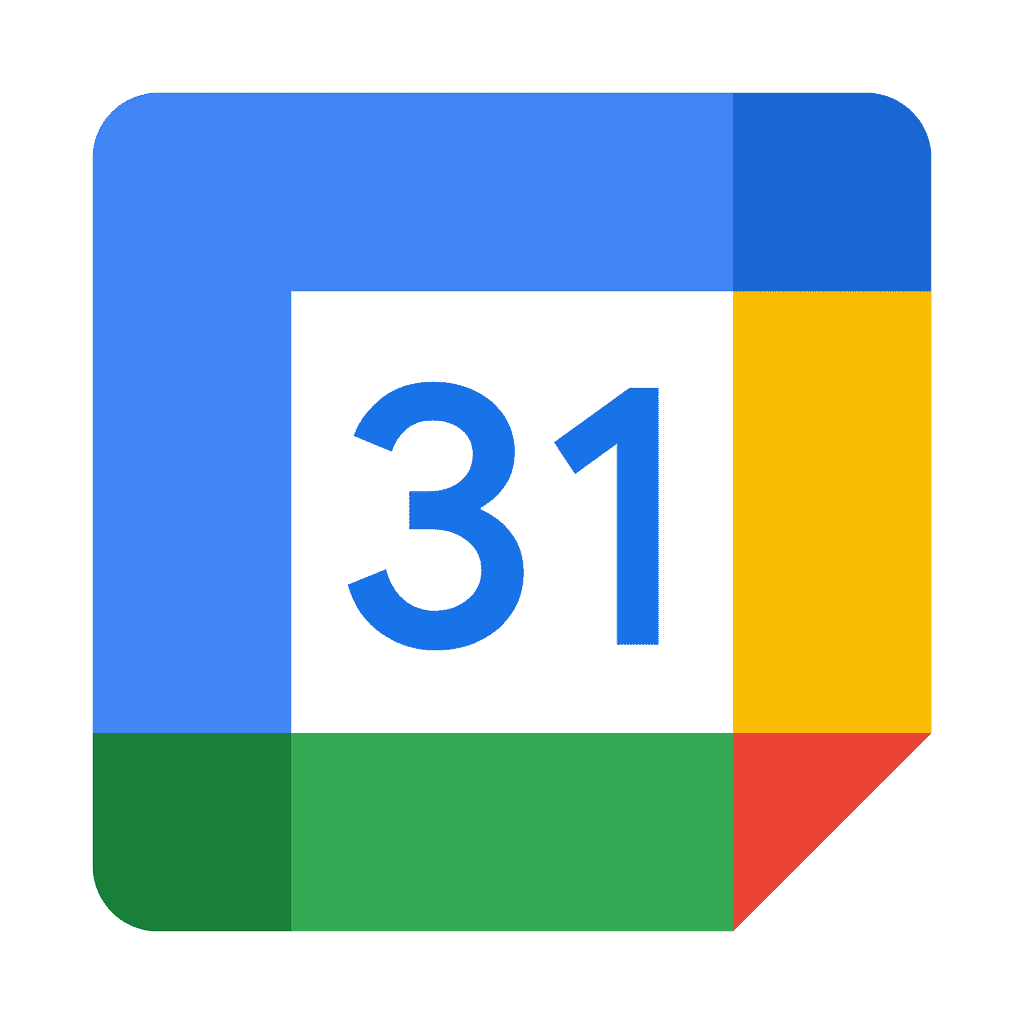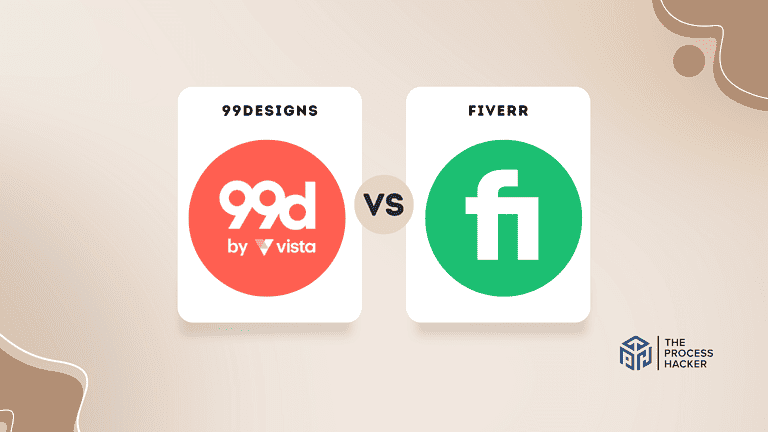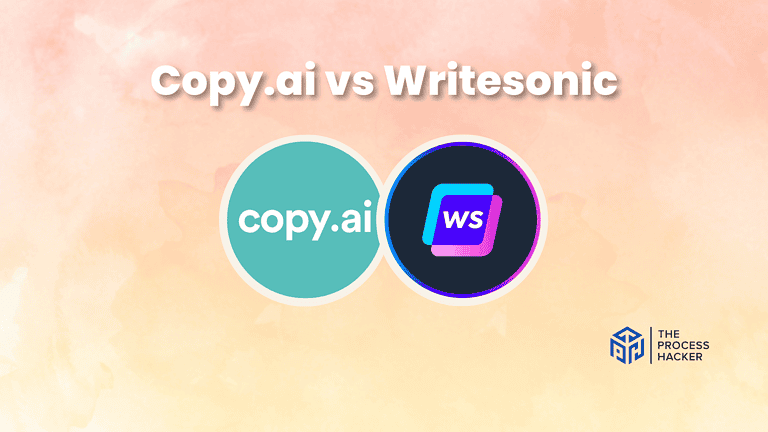Notion Calendar vs Google Calendar: Which Calendar App is Better?
As an entrepreneur or small business owner, staying organized and managing your time effectively is crucial for success.
With so many calendar apps available, choosing the right one to suit your needs can be overwhelming.
This blog post will compare two calendar apps: the popular Google Calendar and the newcomer Notion Calendar. Both are powerful tools that can help you stay on top of your schedule, but which one is better for entrepreneurs and small business owners?
If you purchase through our partner links, we get paid for the referral at no additional cost to you! For more information, visit my disclosure page.
Let’s break down the features and benefits of each to help you decide which calendar app best fits your needs.
So grab a cup of coffee, sit back, and let’s dive into the world of calendar apps!
Brief Overview: Notion vs Google Calendar
First, I’ll give you a quick overview of Notion Calendar and Google Calendar:
Notion Calendar
Notion Calendar is a calendar hub built directly into your all-in-one Notion workspace. It lets you easily link calendar events to projects, tasks, wikis, and notes for a streamlined calendar view of your commitments.
Key Selling Points:
- Integrated task management and note-taking for a comprehensive project management solution
- Highly customizable interface and Notion templates to fit various project needs of all Notion users
- Supports embedding of multimedia, documents, and web content directly within every same page
- Offers collaboration features that allow for real-time teamwork and project sharing
- Advanced database functionality for detailed project tracking and management
- Can be linked to multiple calendars
Google Calendar
Google Calendar is a time-management and scheduling calendar service developed by Google. It’s simple and reliable, allowing you to schedule events, set reminders, and share your calendar with others.
Key Selling Points:
- Simple and intuitive interface, making it easy to schedule events and virtual meetings
- Powerful integration within the Google ecosystem, such as Gmail and Google Meet
- Automatic event creation from Gmail, saving time on manual entries
- Flexible sharing and permission settings to easily manage access with others
- Mobile app availability for scheduling and notifications on the go
Quick Verdict: Notion Calendar vs Google Calendar
Notion is more than just a calendar; it’s a comprehensive tool that integrates notes, tasks, wikis, and databases to provide a centralized platform for all your event scheduling needs. With its highly customizable features, you can tailor the calendar and workspace to fit the specific requirements of your projects and teams.
Whether managing a complex project, tracking a content calendar, or planning a product launch, Notion Calendar offers a great new app to keep everything organized and accessible.
Google Calendar excels in its simplicity, reliability, and integration with other Google services, making it a seamless fit for personal time and straightforward team scheduling. Its easy-to-use interface lets you quickly add events, set reminders, and share your schedule with others.
Google Calendar is ideal for those who need a reliable and uncomplicated tool to manage their time without extensive project management features.
Product Overview: Notion Calendar vs Google Calendar
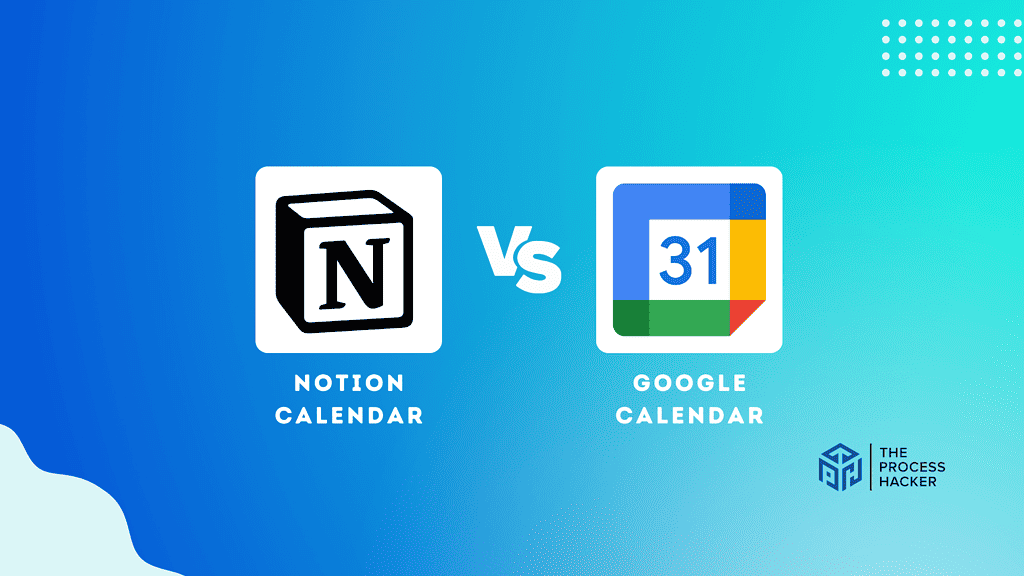
What is it?
Notion Calendar is a robust calendar built directly into your Notion workspace. It lets you connect events with projects, notes, and databases for ultimate organization.
Google Calendar, on the other hand, is a time-management and scheduling calendar service developed by Google. It provides a straightforward and reliable way of scheduling events, setting reminders, and sharing calendars with others.
Who is it for?
Notion Calendar is best for teams and individuals looking for an all-in-one solution to manage projects, tasks, and documentation. It’s ideal for those who appreciate flexibility in organizing their work and prefer a single platform that can handle various aspects of project management.
Google Calendar is for anyone who needs a dependable and uncomplicated way to manage their schedule. Whether you’re a student, a professional, or just looking for a way to keep track of your appointments, Google Calendar’s ease of use makes it a great choice.
What makes it special?
Notion Calendar stands out due to its comprehensive project management and collaboration approach. Its unique selling point is the ability to customize the workspace to fit your project’s needs, making it a powerful tool for those who need more than just a calendar.
Google Calendar excels in its simplicity and integration with Google’s ecosystem. Its special appeal lies in its straightforward design, making it easy to use for scheduling and time management without requiring extensive setup or customization.
What does it do?
Notion Calendar combines project management tools with a calendar interface, enabling you to track deadlines, assign tasks, and manage projects in one place. Its flexible design allows for various uses, from content planning to product roadmaps.
Google Calendar provides a clear and organized view of your schedule, with features to add events, set reminders, and share calendars with others. It’s designed to be intuitive, ensuring you can easily manage your time without any hassle.
Quick Comparison: Notion Calendar vs Google Calendar
| Key Features | Notion Calendar | Google Calendar |
|---|---|---|
| #1) Free Use | Tie | Tie |
| #2) Design & Functionality | Tie | Tie |
| #3) Event Creation and Management | Tie | Tie |
| #4) Calendar Sharing and Collaboration | Winner | |
| #5) Reminders and Notifications | Winner | |
| #6) Managing Recurring Tasks | Winner | |
| #7) Project Management | Winner | |
| Overall | Winner |
Feature Comparison: Notion Calendar vs Google Calendar
Let’s compare the features of these project management calendars so you can make the right decision for you and your business.
#1) Free Services
Notion Calendar is free to use if you already have a Notion account. Whether on the free Personal or a paid plan, you’ll get full access to Notion Calendar’s features.
Google Calendar is a free service; you don’t need a Google account to start using it. It’s a fantastic option if you’re looking for a powerful scheduling tool without any cost.
Which is better? This depends on your existing setup.
If you already use Notion, then Notion Calendar’s inclusion with any Notion plan makes it an easy pick. But, if you’re not tied to any particular workspace platform, then Google Calendar’s standalone free option is tough to beat.
Verdict: For pricing, it’s a tie! Both offer excellent free services.
#2) Design & Functionality
Notion Calendar’s design is all about customization. You can view your calendar as a daily, weekly, monthly, list, or timeline view, adapting it to how you best visualize your work. It also deeply integrates with Notion databases – this lets you use calendar events like any other item in Notion, giving you tons of organizational power.
Google Calendar prioritizes simplicity and familiarity. Its interface is clean and straightforward, making adding events, setting reminders, and switching between views easy. Plus, it works seamlessly with other Google apps like Gmail, automatically turning emails about flights or appointments into calendar entries.
If you’re looking for a tool that offers extensive customization and the ability to manage projects, tasks, and notes all in one place, Notion is the clear winner. However, if your priority is simplicity, speed, and integration with Google services, Google Calendar will serve you better.
Verdict: For design and functionality, it’s a tie. Choose Notion for a customizable project management experience or Google Calendar for straightforward and efficient scheduling.
#3) Event Creation and Management
Event creation in Notion Calendar starts by connecting it to your existing Notion workspace. You can link events to specific projects, add notes, or turn the event into a full-fledged database item with custom properties. This gives you tons of flexibility to track details relevant to your projects.
Google Calendar keeps things simple. You can quickly add events with a title, time, and location. Its integration with Gmail means events can be created automatically from emails or invites. Google Calendar also makes setting reminders and sharing event details with others easy.
If you need detailed event information that’s tied in with your broader project plans, Notion Calendar is the way to go. But, if speed and ease of sharing are more important, Google Calendar takes the lead.
Verdict: For event creation and management, Notion Calendar wins if you crave rich customization. At the same time, Google Calendar shines for quick setup and seamless sharing.
#4) Calendar Sharing and Collaboration
Notion Calendar makes sharing specific calendar views with others within your Notion workspace easy. This is perfect if you’re collaborating on a project and want to keep everyone’s schedules aligned with deadlines and milestones. However, sharing outside your Notion workspace can be tricky.
Google Calendar excels at sharing and collaboration. You can easily share your calendar or specific events with adjustable permission levels. Plus, you can send invites, manage RSVPs, and suggest new meeting times, all within the calendar interface.
The Notion Calendar does the job if your collaboration needs are primarily within your existing Notion workspace. But for sharing with anyone, whether they use Notion or not, Google Calendar offers a smoother and more versatile experience.
Verdict: Google Calendar is the clear winner for calendar sharing and collaboration.
#5) Reminders and Notifications
With Notion Calendar, you can set up reminders for tasks and deadlines. These reminders can be customized to your liking, whether you want to be notified a day, an hour, or even a minute before the task is due. This way, you can stay on schedule without missing important deadlines.
Google Calendar, meanwhile, takes reminders and notifications to another level. You can set up event reminders, get daily agenda emails, and even receive notifications for upcoming events on your phone. Plus, if you’re using other Google services, your reminders will be integrated across all platforms.
When it comes to reminders and notifications, both tools offer solid features. If you prefer customizable reminders and want to manage tasks within your calendar, Notion Calendar is a great choice. However, Google Calendar has the edge if you want a more comprehensive notification system that integrates with other services.
Verdict: Google Calendar takes the lead for reminders and notifications thanks to its complete notification system and integration with other Google services.
#6) Managing Recurring Tasks
Notion Calendar offers recurring events with basic functionality. You can set events to repeat daily, weekly, monthly, or yearly. While this is fine for simple scheduling, the lack of advanced options (like repeating every other week or on specific days) might be limiting for more complex recurring tasks.
Google Calendar truly shines when it comes to the ability to create tasks that are recurring on a specific pattern. Not only does it offer the same intervals as Notion Calendar, but you also get far greater customization. You can set events to repeat on specific days of the week, every few weeks, or even based on custom patterns. You can also choose your permanent answer on whether you will attend or not on recurring or scheduled meetings or its RSVP feature.
Google Calendar is the clear winner if you need detailed control over your tasks and actions to recurring events. Notion Calendar’s basic recurring event functionality might be enough for simple use cases.
Verdict: Google Calendar offers much more flexibility and customization for managing recurring tasks and scheduling meetings.
#7) Project Management
This is where Notion Calendar truly shines. Its ability to link calendar events with relevant notes, tasks, and databases within your Notion workspace gives you a centralized view of your projects. Use it to track deadlines, milestones, and schedule meetings directly alongside the rest of your project plans.
Google Calendar primarily focuses on scheduling. While it can help with basic timelines, it doesn’t offer the robust project management features that Notion Calendar does. You’re better off using it with a dedicated project management tool.
Notion Calendar is a powerful way to streamline your workflow if you heavily rely on Notion for project organization. However, if your project management needs go beyond simple deadlines, or if you don’t currently use Notion, Google Calendar will likely fall short.
Verdict: Notion Calendar is the clear winner for project management, mainly if you already use Notion.
Final Thoughts on Notion Calendar vs Google Calendar
Notion Calendar is a fantastic choice if you’re deeply invested in the Notion ecosystem. The way it integrates deadlines and events with the rest of your Notion workspace is compelling for organized project management.
However, for most people, Google Calendar is the best calendar tool. It’s free, intuitive to use, plays well with Gmail, and offers robust features for reminders and collaboration. Unless you’re already using Notion heavily, Google Calendar provides a smoother and more versatile experience for scheduling your projects and keeping your life on track.
I’ve used both calendars extensively, and while Notion Calendar has its strengths, Google Calendar is simply the more accessible and well-rounded choice for most people.

